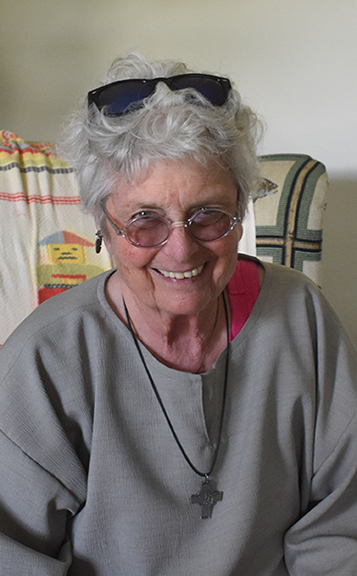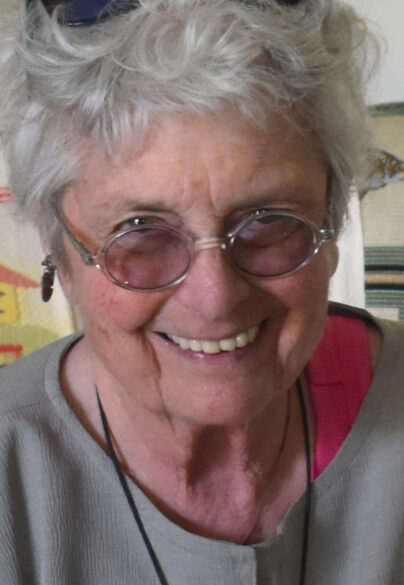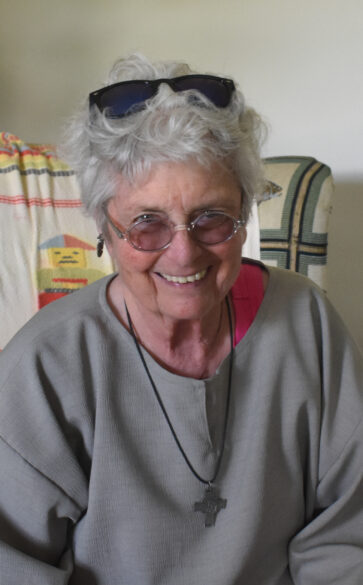FROM THE HERMITAGE
By sister alies therese
Mother Teresa commented, “Everywhere there is suffering, but there is also a great hunger for God and love.” Gotta go for that, and as we welcome the ‘Pope named Bob’ as our shepherd, I suspect the tension between the two will continue to be addressed. One way Pope Francis left us, not long before his passing, was his charge to artists. As we move into this new era, let us not forget how critical beauty is!
At White Night in St Peter’s, Papa Francis told artists, “the responsibility of artists is to make beauty shine.” He included all sorts of artists … writers, dancers, musicians and painters, among many, and he set a bar for happy hearts. There is much suffering, and there is much hunger, and one way these are addressed is through the arts. That Pope Francis charged artists with the ‘responsibility’ of ‘making beauty shine’ is no small assignment. Most countries have a national arts something or other that shares culture and beauty … some nations restrict how they share it. Even the poorest of nations have marvelous works of art that lift the spirits of their families and peoples and share with others the joy of their culture.

Francis suggested that “artists must help humanity not to lose its way … to be witnesses to the revolutionary vision of the beatitudes … not only creating beauty but also ‘revealing the truth and goodness hidden within the folds of history giving voice to the voiceless.’” Over centuries, artists, builders and designers have left behind impressions and monuments, pots and aqueducts, which have stood the test of time. We saw a lot of Rome as the conclave met … buildings, statues, paintings … all telling stories that the artists wanted us to remember. The scriptures were announced, and we were reminded of the functionality of buildings and also the ways they brought exquisite beauty and harmony to the scene.
Francis continued, “We need artists to help us ask questions about time and purpose … are we pilgrims or wanderers? Does our journey have a destination, or are we directionless?” What demanding questions for people with great insight and courage. It takes both for a person to function as an artist … partly because the criticism can be high enough to cancel them out! No, he asks artists to show us the way forward … to move us beyond selfishness to sharing. If you notice, the conductor has his/her back to the applause. The conductor caresses and encourages the musicians and takes care that they make the music beautiful. Her/his responsibility is to share that joy with listeners so that their hearts might light up and their anguish be set free.
“We must learn,” he said, “to discern between the chaff scattered by the wind from what is solid like trees planted by streams of water (Ps1).” The artist leads us in at least two ways … outward toward the universe (into the 6-20 trillion galaxies and their swirls of old and new designs of stars) and/or down deep into our hearts where we are touched to grow and create. Ecclesiastes reminds us that “God has made everything beautiful in its time.” When the writer says ‘everything’, I have to remind myself that everything means just that … difficulties as well as successes, hard times as well as times of ease. Our God, the greatest of artists, has created for us such beauty and wonder that we can never, even in the longest of lifetimes, take it all in. We are grateful as well to those who can draw our attention to it through their creativity, sharing in these gifts of God. And Paul in Ephesians reminds us that we are indeed God’s work of art … and no artist wants his/her art to be trashed or considered less than. Francis would want us to remember that as we learn to treat one another with greater dignity and respect.
I imagine the era of Pope Leo XIV to be one of learning even more how to care for one another and let us thank Pope Francis for his invitation and charge to artists to make beauty shine.
Blessings.
(sister alies therese is a canonical hermit who prays and writes.)


